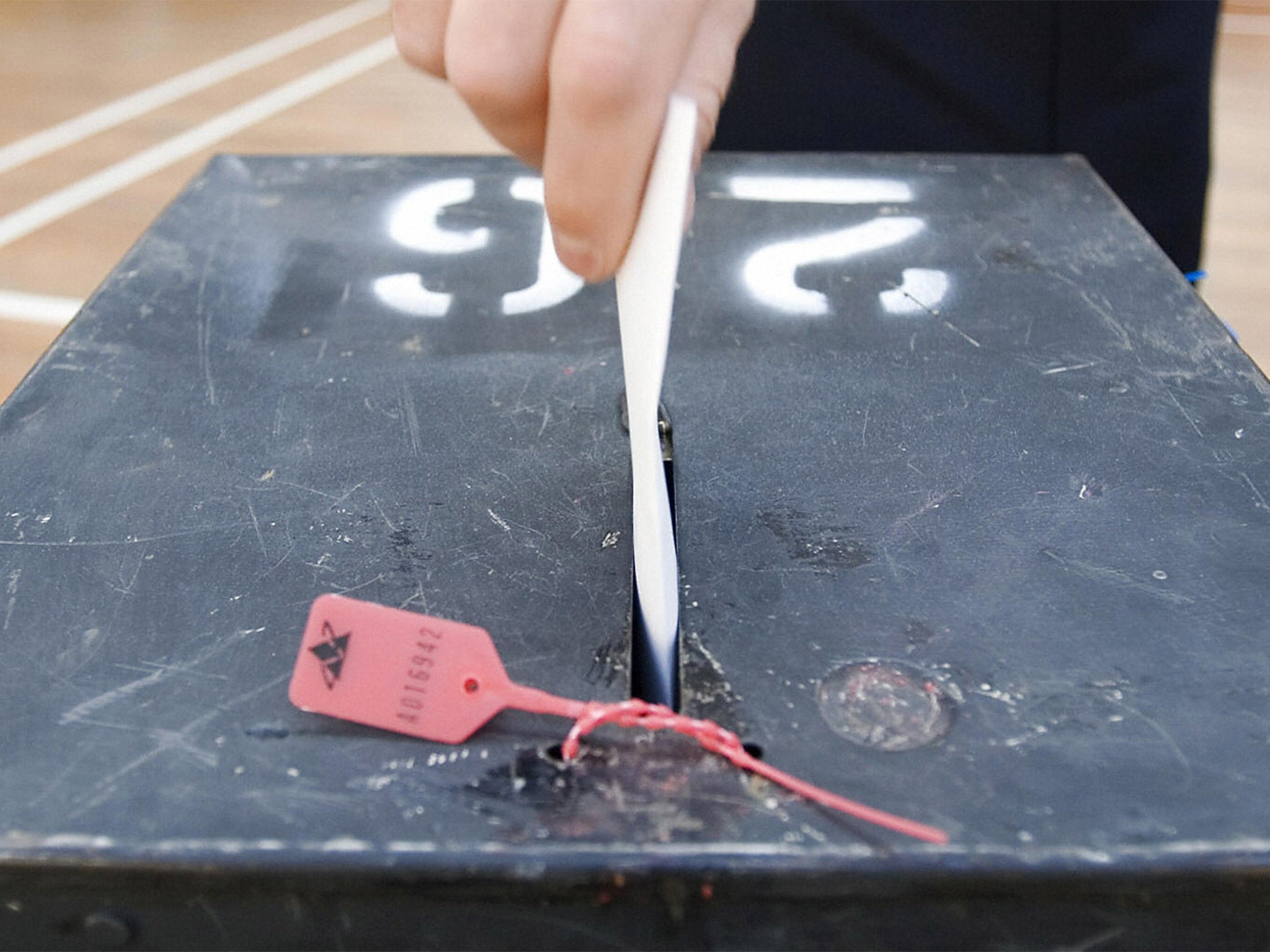General Election 2015: Thousands left without polling cards despite being registered
Councils and the Electoral Commission are urging people to turn up at polling stations anyway

Your support helps us to tell the story
From reproductive rights to climate change to Big Tech, The Independent is on the ground when the story is developing. Whether it's investigating the financials of Elon Musk's pro-Trump PAC or producing our latest documentary, 'The A Word', which shines a light on the American women fighting for reproductive rights, we know how important it is to parse out the facts from the messaging.
At such a critical moment in US history, we need reporters on the ground. Your donation allows us to keep sending journalists to speak to both sides of the story.
The Independent is trusted by Americans across the entire political spectrum. And unlike many other quality news outlets, we choose not to lock Americans out of our reporting and analysis with paywalls. We believe quality journalism should be available to everyone, paid for by those who can afford it.
Your support makes all the difference.Thousands of Britons have been left without polling cards despite registering to vote – with councils and the Electoral Commission urging people to turn up at polling stations anyway.
There are fears that the missing cards could lead to a drop in turnout for the closest election battle in a generation, as those affected wrongly assume they will be unable to cast their ballot.
Citizens across the country, from Folkestone to Durham to Suffolk, reported that they were still without a polling card with just 24 hours to go to the election.
In some areas local authorities have written to affected residents to remind them where to go to vote, and to encourage them to do so even if they do not have a card.
Under electoral law, people who have registered to vote are allowed to cast their ballot by saying their name and address at the right polling station. Neither polling cards or ID are required, except in Northern Ireland where ID is compulsory.
The lowest turnout in a general election was 57.2 per cent recorded in 1918, the year the First World War ended. The 2001 election turnout was 59.4 per cent; in 2005 it was 61.4 per cent and in 2010 it was 65.1 per cent.
In a separate development, some British citizens who are living abroad but eligible to vote in the election also expressed frustration that their postal ballots had not arrived in time for them to be returned and counted tonight. A spokesperson for Shepway District Council apologised for the delays and said it would be investigating why the cards had not arrived.
In Durham, the council claimed the problem was isolated to a handful of streets. In Hackney, east London, up to 3,000 people are thought to be affected by delays to the delivery of postal votes. The council has promised to send couriers to deliver as many as possible before the deadline expires.
Missing postal ballots could prove critical to the outcome in marginal constituencies such as Oxford West and Abingdon, which the Conservatives took from the Liberal Democrats in 2010 with a majority of just 176 votes. Up to 50 overseas postal votes sent out from the area are thought to have been delivered late.
Jenna Hatch, a 33-year-old schoolteacher who is registered in the constituency but lives in New Zealand, said she had formal confirmation that she had registered in time to participate in the election, but her paperwork had failed to arrive.
She had been intending to vote Liberal Democrat. “I feel robbed of my democratic right,” Ms Hatch said. “It’s a tiny majority for the Tories so all those votes really make a difference. Everyone I meet over here asks why I can’t do it online. It’s enraging that there’s no mechanism for a more sensible way to vote than posting it out.”
David Buckle, the acting returning officer for the constituency, said the authority was offering proxy votes as an alternative.
Election expert Dr Toby James, a lecturer in British politics at the University of East Anglia, said the lack of polling cards in some areas would likely lead to a lower voter turnout. In 2010, 13 per cent of those who didn’t vote blamed administrative issues including not receiving a polling card or postal vote.
However the pressure put on councils to verify every voter under the new registration system – including half a million people who only registered on the last possible day – may also be responsible for the delays. “It’s a major IT project and a major change, and it’s put a lot of work and effort on to local authorities,” he said.
Join our commenting forum
Join thought-provoking conversations, follow other Independent readers and see their replies
Comments